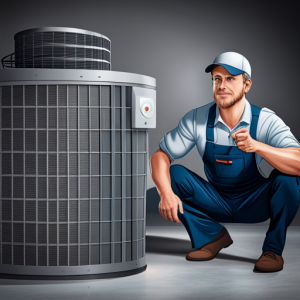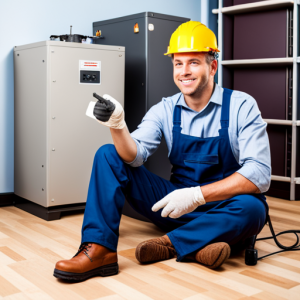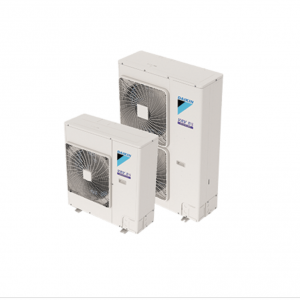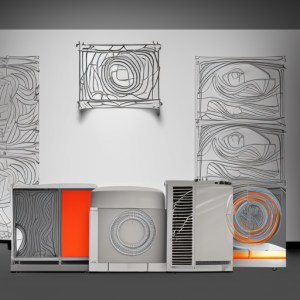Guide to Heat Pump HVAC Energy Rebates
A Comprehensive Guide to HvAC Energy Rebates: Upgrading to a More Energy-Efficient Heating System
The need for energy conservation and reduced carbon footprint has become increasingly important in recent years. One way to achieve this is by upgrading your HVAC system to a more energy-efficient one. Fortunately, there are various energy rebate programs that can help you achieve this goal. In this blog post, we will explore the different types of heat pumps and efficiency ratings, discuss the importance of using certified contractors for installation, explain the energy efficiency standards for qualifying for rebates, and highlight the limitations of energy rebates. We will also discuss the benefits of upgrading from a gas furnace to an electric heat pump and how to qualify for energy rebates when making the switch.

starting an HVAC Business
Types of heat pumps and efficiency ratings
Heat pumps are a popular choice for heating and cooling homes and buildings. There are three types of heat pumps namely air source, ground source, and geothermal heat pumps. Air source heat pumps use the outside air to heat or cool the home, ground source heat pumps use the heat from the ground, and geothermal heat pumps use the energy from the ground or water.
Heat pumps are rated based on the Seasonal Energy Efficiency Ratio (SEER) and the Heating Seasonal Performance Factor (HSPF). SEER measures the cooling efficiency of a heat pump, while HSPF measures the heating efficiency. A higher SEER and HSPF rating means that the heat pump is more efficient. It is essential to note that different types of heat pumps have different ratings. For instance, geothermal heat pumps have a higher efficiency rating than air source heat pumps.
Certified contractors for installation
It is always advisable to hire certified contractors to install your HVAC system. Most energy rebate programs require one to use certified contractors. These contractors have the expertise to install and maintain your heating system efficiently, ensuring that you get maximum energy efficiency. Using a non-certified contractor may result in improper installations, which can lead to energy wastage.
Finding certified contractors is easy. Energy rebate programs often have a list of approved contractors that one can choose from. Alternatively, you can visit the websites of professional organizations such as the Air Conditioning Contractors of America (ACCA) to find certified contractors in your area.

hvac cheapest bid
Energy efficiency standards for qualifying for energy rebates
Energy rebate programs have energy efficiency standards and ratings that one must meet to qualify for the rebate. These standards and ratings vary depending on the program. Energy Star, LEED, and other organizations have specific energy efficiency requirements that one must meet.
It is essential to determine and meet these standards before applying for rebates. To do this, one can consult with a certified contractor to assess their HVAC system and recommend the required upgrades. Meeting these standards can also result in other benefits, such as lower energy costs and improved comfort.
Limitations of energy rebates
While energy rebates are a great incentive for energy conservation, they do have some limitations. For example, some programs only apply to specific buildings or locations. It is essential to determine if your building qualifies for a given program before applying for a rebate. Alternatives to energy rebates include tax incentives, low-interest loans, and other incentives offered by some government agencies.
Upgrading from a gas furnace to an electric heat pump
Upgrading your HVAC system from a gas furnace to an electric heat pump has several benefits. Heat pumps are more energy-efficient than gas furnaces, resulting in lower energy bills. They are also eco-friendly and have a longer lifespan. In addition, upgrading to an electric heat pump can qualify you for energy rebate programs, resulting in additional cost savings.
To qualify for energy rebates when upgrading to an electric heat pump, one must meet the energy efficiency standards required by the program. Consulting a certified contractor is crucial in determining the necessary upgrades and meeting these standards.

energy rebates hvac
Upgrading to a more energy-efficient heating system is not only cost-effective but also crucial in reducing carbon footprint. Energy rebate programs provide a great incentive to make the switch. By understanding the different types of heat pumps and efficiency ratings, using certified contractors for installation, meeting energy efficiency standards, and understanding the limitations of energy rebates, you can make the right decision for your home or building. Additionally, upgrading from a gas furnace to an electric heat pump can qualify you for energy rebate programs and provide additional cost savings. We encourage you to explore energy rebate programs and upgrade to more energy-efficient heating and cooling systems.







